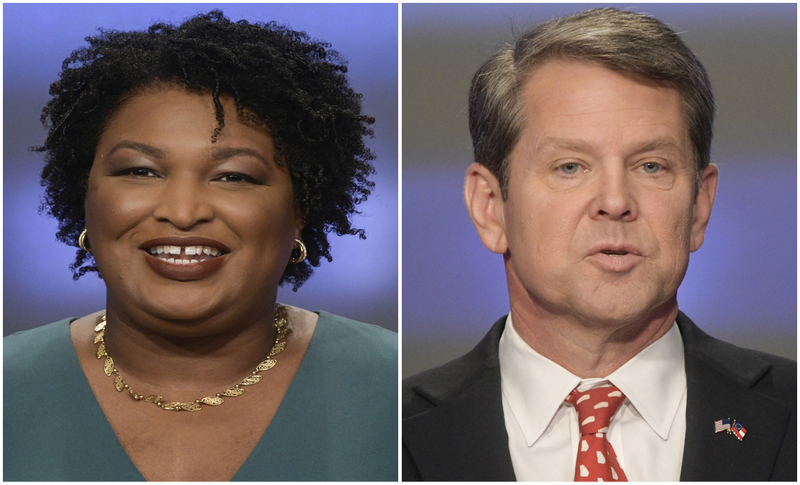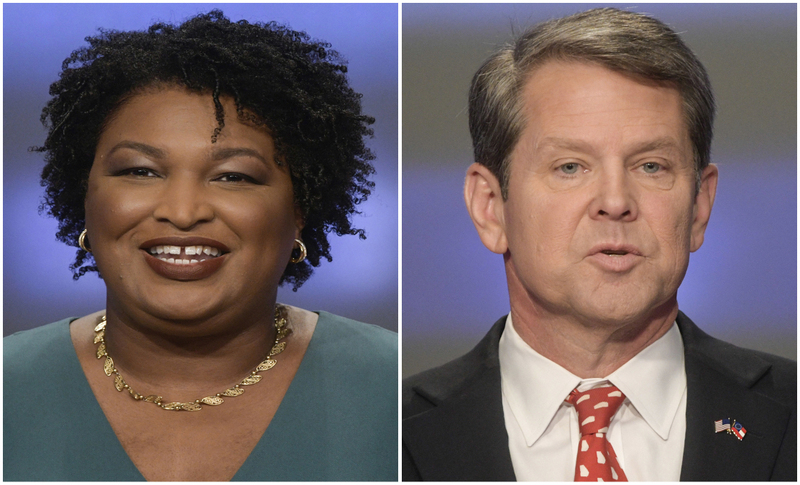[ad_1]
By Brinley Hineman, The Associated Press
A small, majority-Black south Georgia county’s proposal to close most of its polling places drew heated national criticism — and saw a quick reversal — during an election year that features the state’s first-ever Black nominee for governor by a major political party.
Concern about the possibility of closing seven of the nine voting locations in rural Randolph County, population about 7,000, provoked accusations that Black voters would be disenfranchised.

The county’s election board decided Aug. 24 to scrap the plan. But voting rights activists say the controversy highlights a widespread problem and the need for a revitalized federal Voting Rights Act.
Critics had questioned the timing of the proposed changes in Randolph County during a hotly contested governor’s race. Georgia’s top elections official, Republican Secretary of State Brian Kemp, is running against Democratic lawmaker Stacey Abrams, who is trying to become Georgia’s first Black governor. In e-mails to supporters Friday, Kemp and Abrams applauded the board’s decision.
Abrams’ e-mail urged supporters to challenge any voter suppression attempts.
“Decisions to close polling locations are not a matter of cost, but a question of priorities,” the e-mail says. “Your right to vote is priceless, and all of us have to keep fighting to protect it.”
Kemp’s e-mail reads: “Today, the Board of Elections, who are empowered to make these decisions, finally did the right thing and rejected this ill-advised, poorly timed proposal from an independent consultant who is not backed by the Secretary of State’s office.”
The ACLU of Georgia said in a news release after the vote that the situation “demonstrates clearly the need to reinstate the pre-clearance provision of the Voting Rights Act,” which required “historically-discriminatory states such as Georgia to obtain preapproval from a U.S. court or the U.S. Department of Justice before enacting any election changes to ensure that proposed changes would not discriminate against protected minorities.”
The NAACP Legal Defense and Educational Fund and the American Civil Liberties Union of Georgia sent a joint letter Aug. 22 to election officials in all 159 Georgia counties, urging them to avoid polling place changes that could disenfranchise voters.
The conflict arose after Randolph County officials asked Kemp’s office for guidance, following the abrupt resignation earlier this year of the former county election supervisor, county attorney Tommy Coleman said. Coleman told The Associated Press repeatedly that Chris Harvey, the elections director for Kemp’s office, only recommended Mike Malone. Kemp’s office and his campaign maintain that the office’s elections director suggested several possible consultants.
Malone said the seven polling places in question don’t comply with the Americans with Disabilities Act and recommended the closures. The seven polling places had all been used for the May primary and the primary runoff in July, and Coleman said officials were aware of ADA compliance issues. The county fired Malone Aug. 22.
Randolph County and the Department of Justice had entered a settlement agreement in 2012 promising to fix the ADA violations in three years. The settlement included a section on polling place compliance. A grant was used to fix issues in the courthouse, but the other updates didn’t happen, Coleman said.
He said he didn’t know what would be done to address the ADA compliance problems, saying the county lacks the money to make the necessary fixes before the November election.
Civil rights groups and Black lawmakers said African-American voters would be disenfranchised if the voting locations were shuttered. Census figures show the county, about 160 miles (260 kilometers) south of Atlanta, is more than 61 percent Black, double the statewide percentage.
On Aug. 23, leaders of the Georgia Legislative Black Caucus and the Congressional Black Caucus strongly urged the county to keep them open. In a letter to Randolph County officials, the congressional group called it “a deliberate effort to disenfranchise an emerging and engaged demographic.”
ACLU of Georgia director Andrea Young said the organization plans to meet with Randolph County residents on Wednesday and will continue to monitor that and other counties. The county should fix any ADA compliance issues at the polling places, she said.
“There are people in the community who can make these repairs, probably for less than they paid the consultant,” she said.
[ad_2]
Source link

